It’s important to know what equipment you need to clean your driveway—not only to get the job done right, but to avoid turning the concrete into a muddy mess. In this guide, we’ll break down what tools we use on a jobsite, when to use them, and what to avoid if you value your surface and your weekend.
If you’ve ever aimed a garden hose at your driveway and thought, “She’ll be right,” we hate to break it to you — but driveway stains don’t budge that easily. Whether it’s baked-on dirt from the dry, oil stains from your leaky ute, or green gunk that’s been breeding since last winter, cleaning your driveway properly takes more than a bit of elbow grease and good intentions.
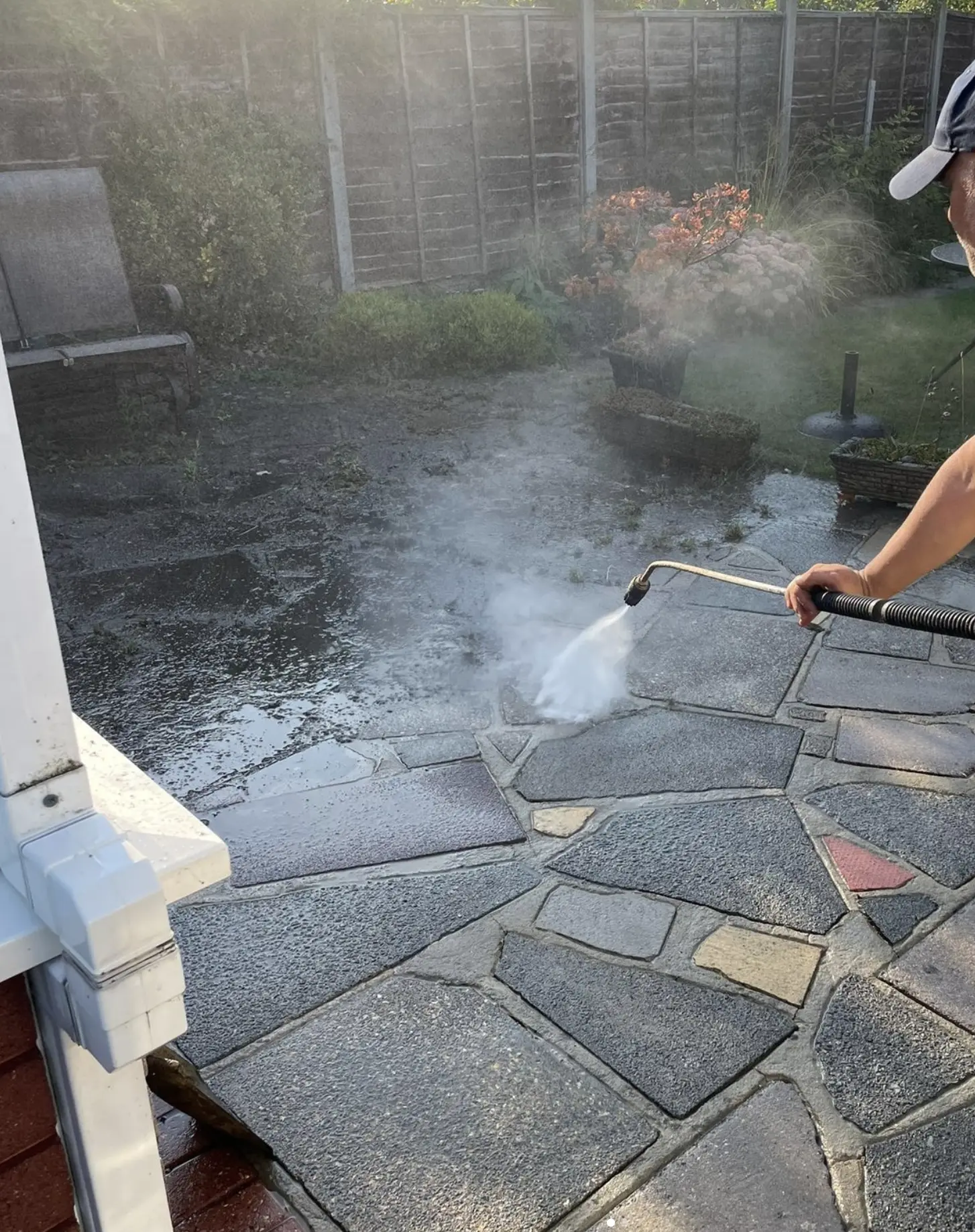
Pressure Washer vs Garden Hose
Pressure Washer (Absolute Must-Have)
If you don’t own one, borrow or hire one. A pressure washer is non-negotiable for tough stains. You’ll want:
- Minimum 2,000 PSI for light-duty
- 3,000+ PSI for stubborn stains or deeper cleanings
- GPM (gallons per minute) of at least 8–11
- Petrol/gasoline-powered pressure washers for large outdoor surfaces, electric for occasional cleaning
Pair this with the right spray nozzle (like a 25-degree or 40-degree nozzle), and you’ll get that steady stream and strong cleaning capacity without wrecking your slab.
Garden Hose (Don’t Bother)
Only good for rinsing dust off a smooth finish. It won’t lift grease stains, tyre marks, or algae stains. Forget DIY pressure washing without the pressure.
The Right Chemicals
What Works:
- Concrete cleaner or degreaser — for oil with cat litter treatment or fresh oil stains
- Laundry detergent or liquid detergent — eco-safe and ideal for basic cleaning
- Biodegradable and eco-friendly detergents — low environmental impact, good for nearby plants
- White vinegar — great on mould & mildew, beverage stains, and algae stains
- Kitty litter — soaks up and absorbs moisture from fresh spills
What to Avoid:
- Acid-based cleaners or acidic cleaning products — risky on absorbent surfaces, can leave chemical residue
- Chlorine bleach — discolours, leaves streaks, kills your garden
- Caustic soda — strong but nasty to handle without safety gear
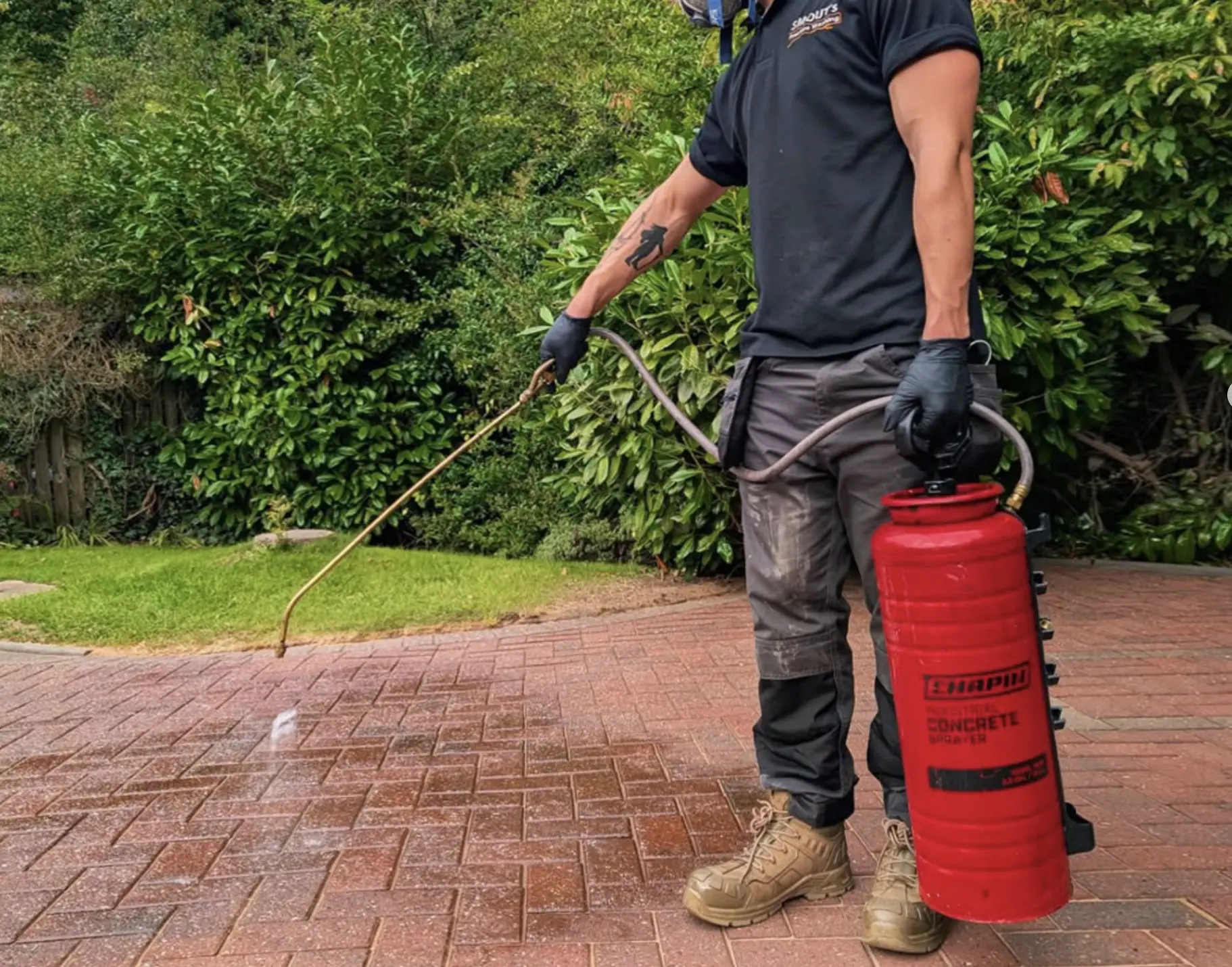
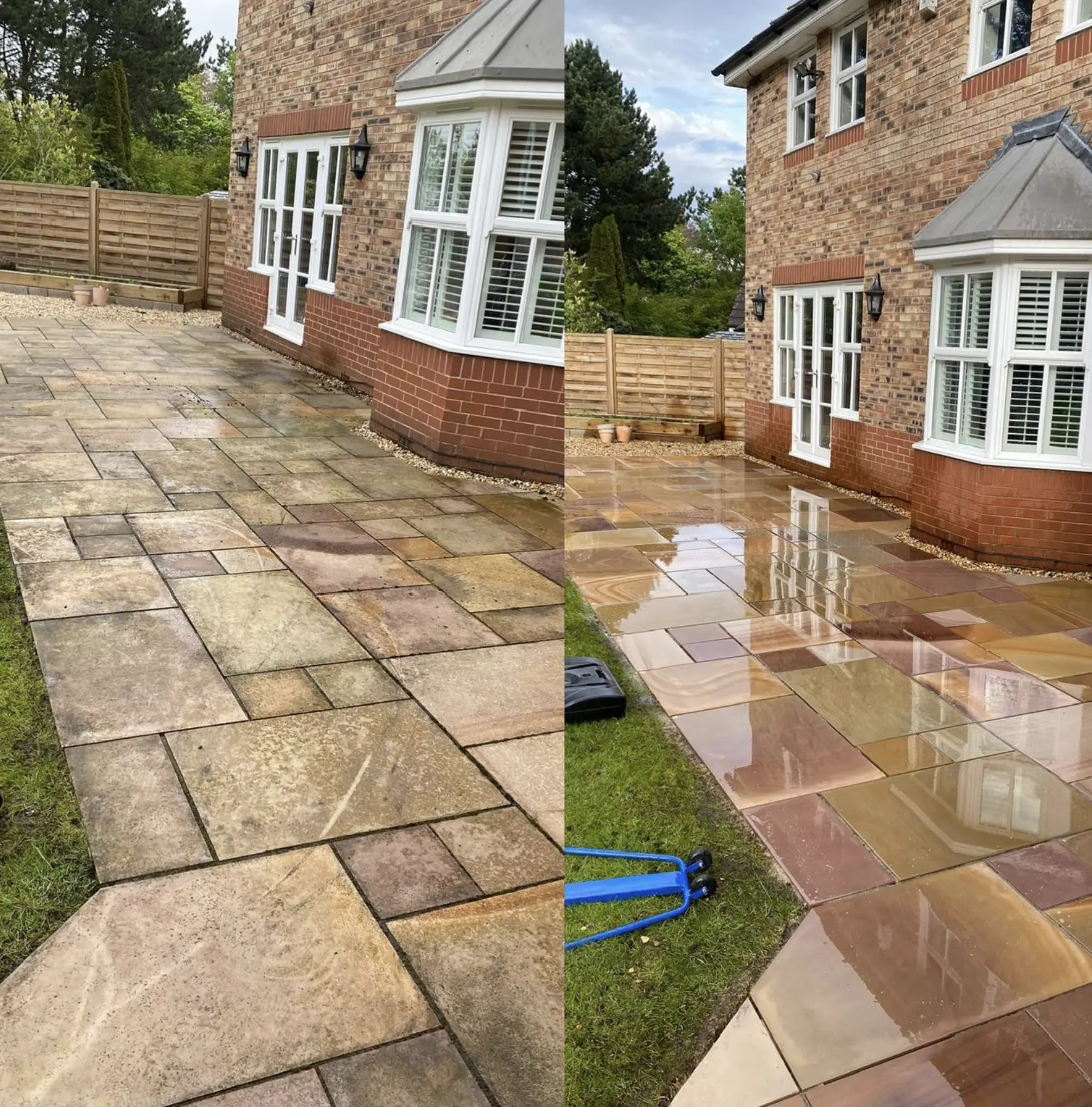
Surface Cleaner: The Efficiency Upgrade
Use a surface cleaner attachment — think of it as a flying saucer that spins under pressure. It’s safer than a careless jet wash and delivers a consistent cleaning outcome.
Why we rate it:
- Cleans evenly with no risk of streaking
- Speeds up big cleaning projects
- Less backspray = less dirty water on you
Match it with the right pressure cleaning tools like a pressure washer wand and brush attachment.
Brushes, Brooms & Old-Fashioned Elbow Grease
Handy Tools
- Nylon-bristled scrub brush or stiff brush — won’t scratch matte finishes
- Nylon bristle broom — for sweeping loose dirt and surface dirt
- Paint brush — helpful for stain treatment in cracks
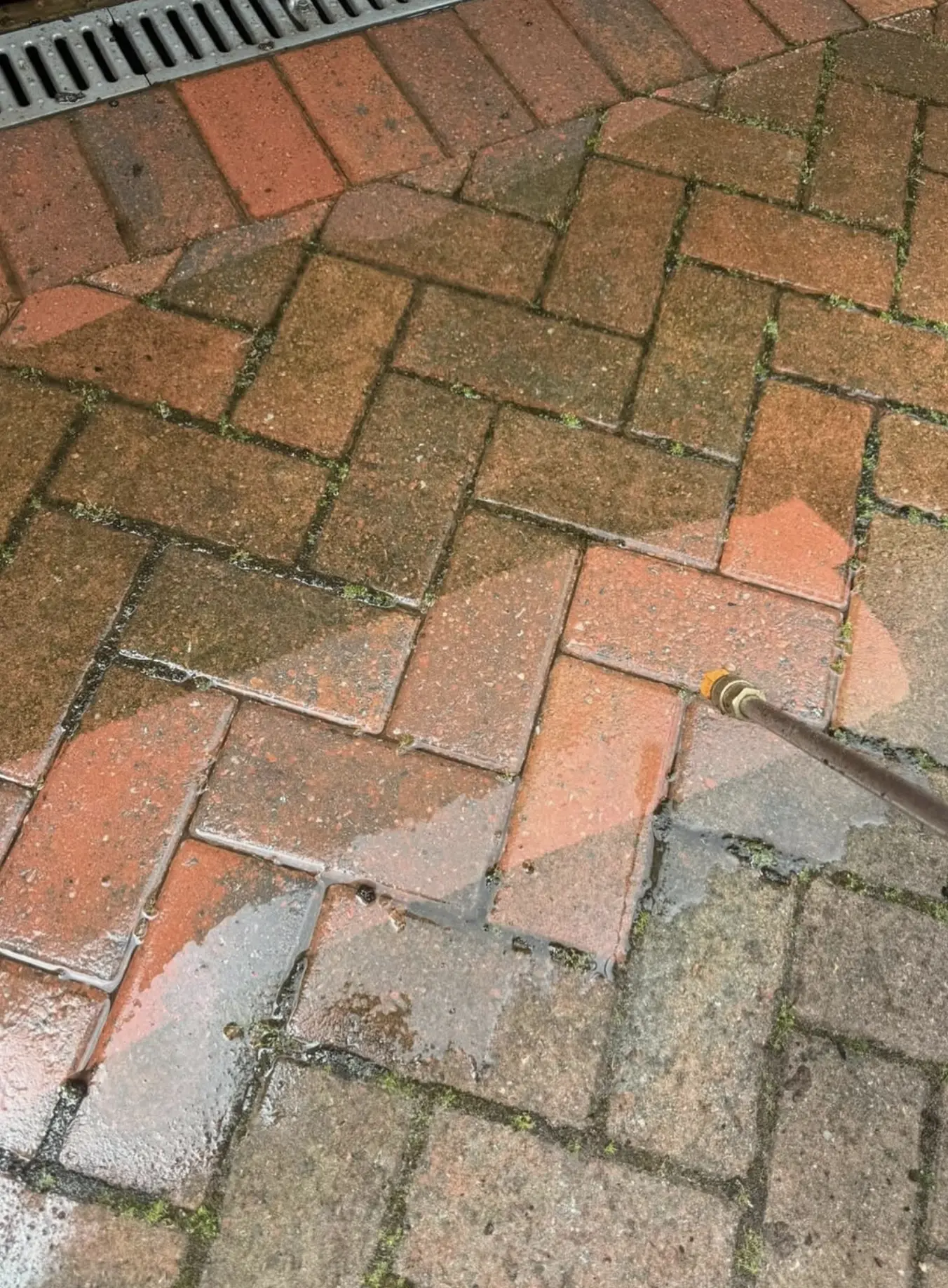
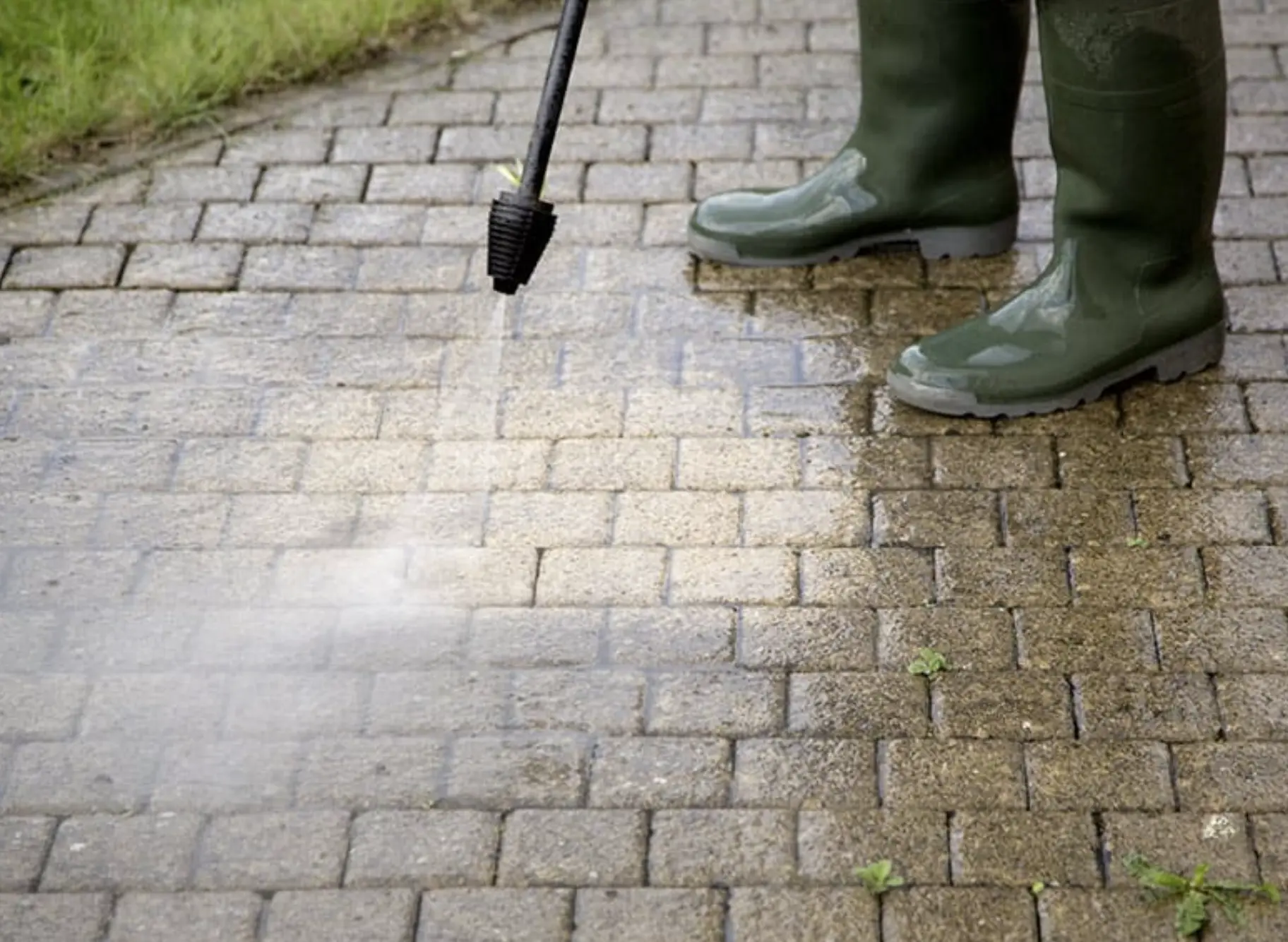
Nozzles, Extensions & Accessories
- 0-degree nozzle – ultra-narrow jet (avoid unless you want damage)
- 15-degree nozzle – for stronger solutions on concrete stains
- 25-degree nozzle – good balance for the general driveway surface
- 40-degree nozzle – safe for basic sweeping and regular cleaning
- 65 or 45-degree nozzle – best for detergents
- Detergent injector – helps apply suitable detergent evenly
Water Supply Setup
- Use a buffer water tank if the mains pressure is weak
- Check the gallons per minute rating
- Connect a bottle with water to flush detergent or clean water for rinsing
- Protect stormwater drains with plastic sheets during chemical cleaner use
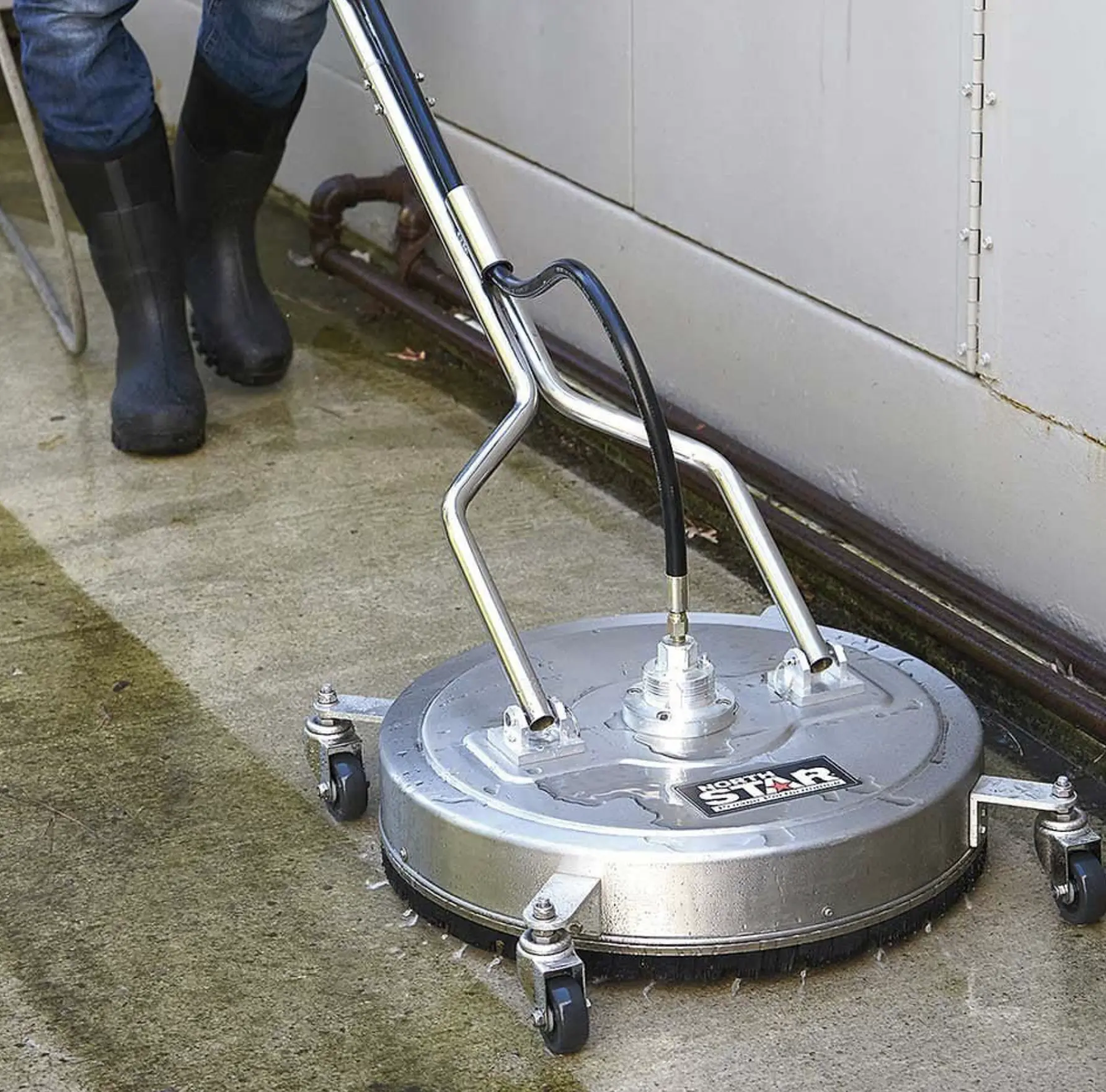
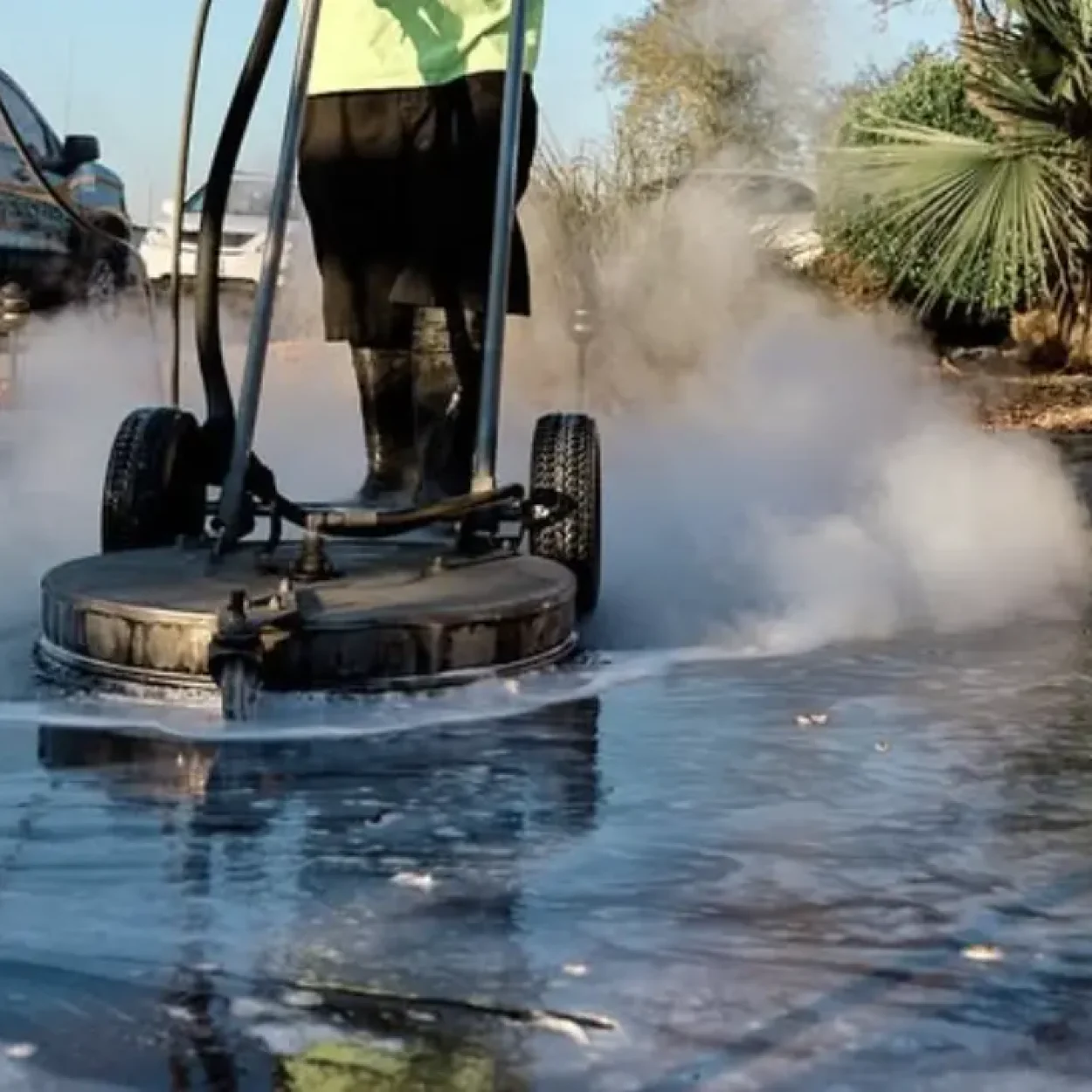
Stay Safe with Proper Gear
- Safety glasses and gloves
- Protective gear — boots with grip, especially on wet outdoor surfaces
- Respirator in well-ventilated areas for chemical cleaning
- Ear protection for loud power washing
Surface Type Cheat Sheet
| Type of Driveway | Gear & Method |
|---|---|
| Concrete | Use high PSI, degreaser, and finish with concrete sealer |
| Stamped concrete | Gentle cycle, avoid acid-based cleaners |
| Exposed aggregate | Low PSI + wide nozzle, protect grout |
| Asphalt driveway | No high pressure, use asphalt-approved filler material |
| Brick surfaces | Soft wash, avoid blasting out joints |
Frequency & Weather Matters
How often you clean depends on:
- Weather damage from the wet or harsh sun
- Absorbent materials that trap grime
- Your goal: Proper maintenance or just the odd boost of curb appeal
Suggested Timelines:
- Regular sweeping: Weekly
- Basic maintenance steps: Every 3–6 months
- Annual pressure washing: Once or twice a year, ideally before selling or sealing
Council Rules
Local councils hate it when chemical cleaning runs into drains. So:
- Use plastic sheets and drainage guards
- Divert water runoff away from gardens and stormwater
- Use biodegradability for plants as your chemical benchmark
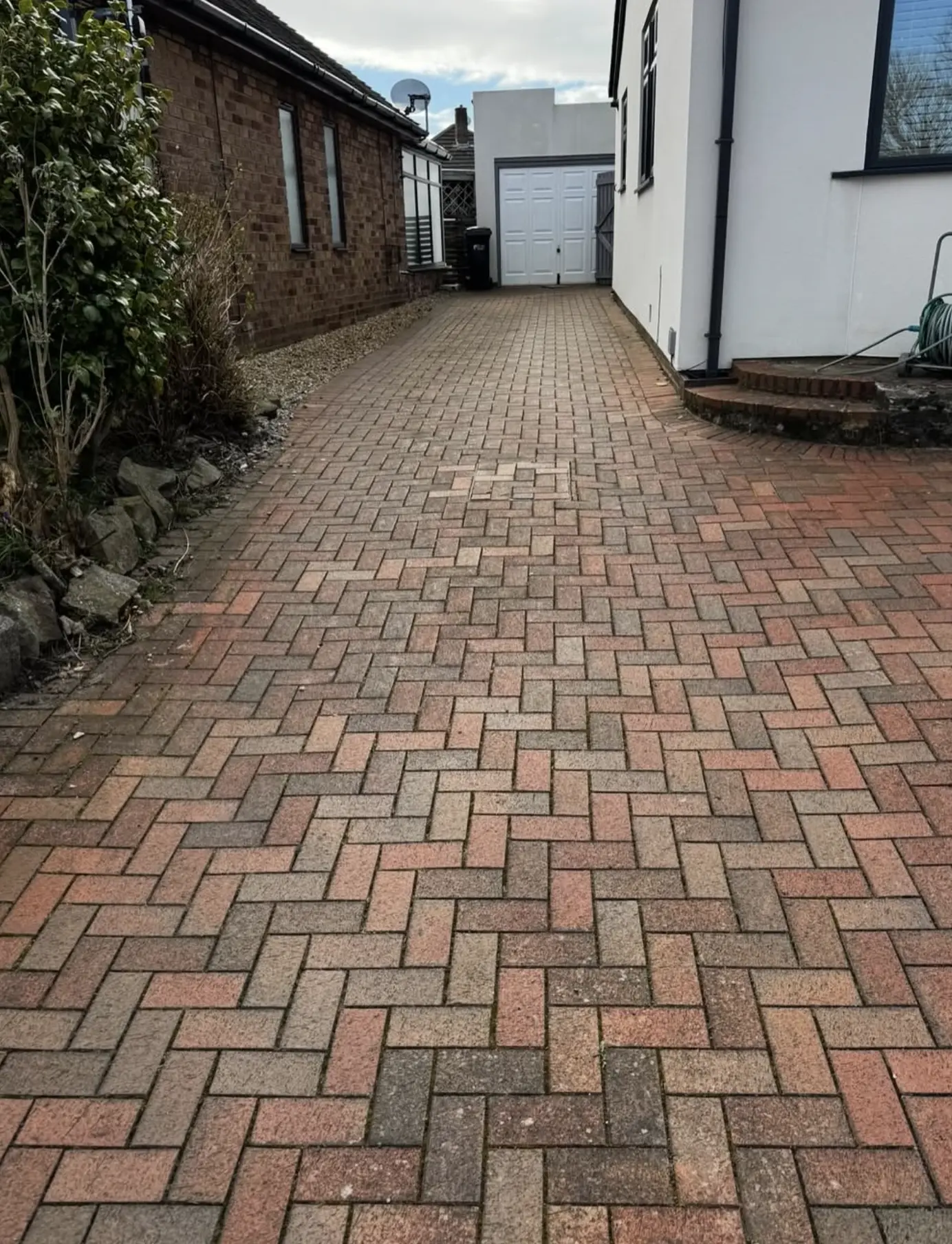
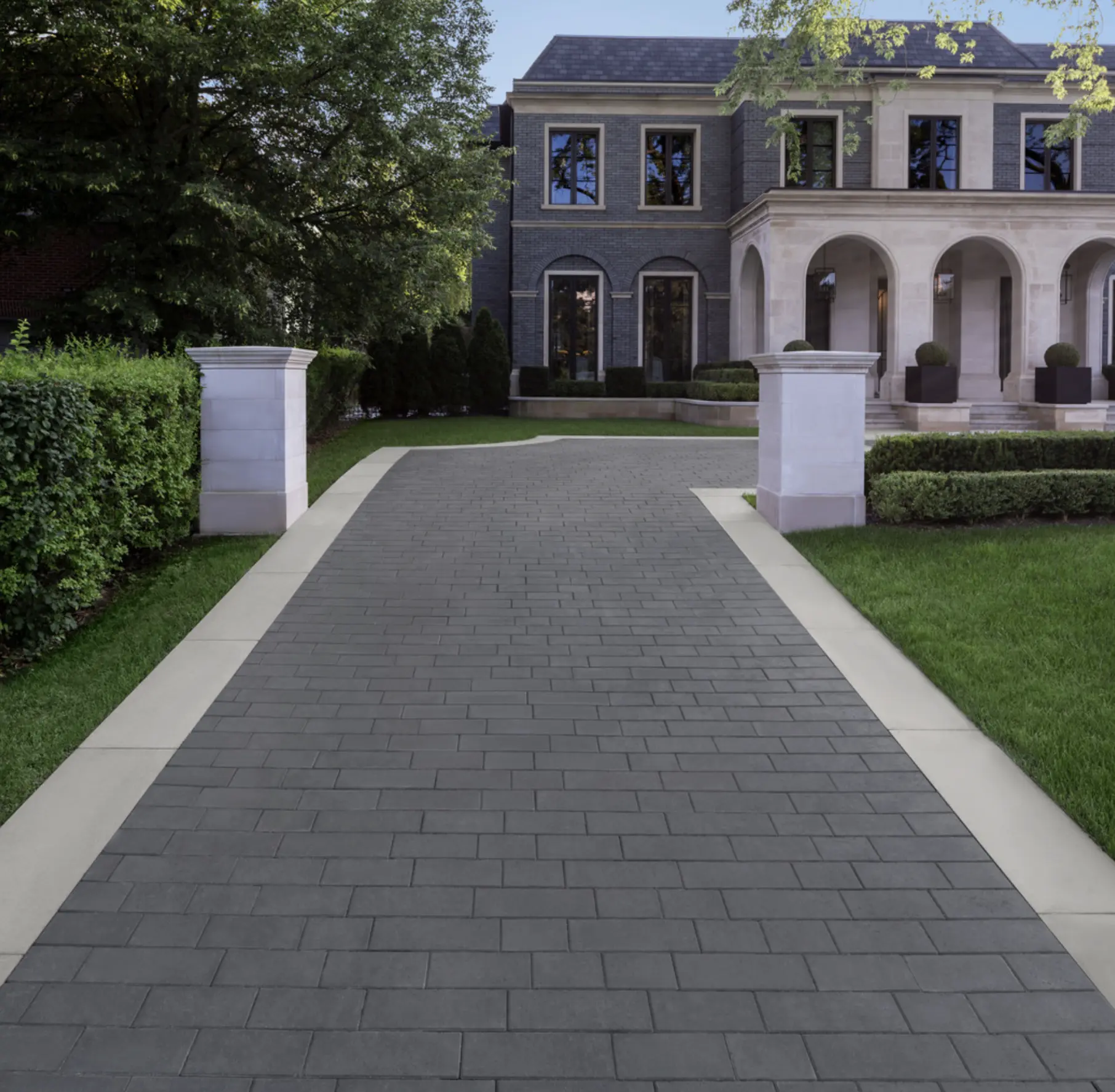
DIY vs Pro: When to Call In Help
You can handle basic cleaning, but for:
- Deep cleaning from weather damage
- Treating mould & mildew spores
- Removing future stains from stubborn stains
- Working with delicate types of driveways
…call a professional driveway cleaning service. Cleaning by professionals ensures no potential damage, better tools, and a safer cleaning outcome.
We’ve worked with enough driveways to know what works and what doesn’t — the same goes for our mates at Window Cleaning Melbourne Crew. In Melbourne, they’ve seen firsthand how outdoor grime loves to hang on, especially after a wet winter or a dusty dry spell.
FAQ
What’s the best equipment for tougher stains?
Use a pressure washer with a surface cleaner and a strong cleaning solution like degreaser or white vinegar for tough stains.
Can I clean my driveway with just laundry detergent?
Yes, for basic cleaning. Use warm water and a stiff brush. For grease stains, you’ll need something stronger.
Do I need to reseal my driveway?
If it’s concrete or porous, yes. A concrete sealer adds a protective barrier against future staining.
How do I remove oil stains without pressure washing?
Use kitty litter to absorb it, then scrub with baking soda and white vinegar. Let sit 10–15 minutes, then rinse.
What’s better — DIY or hiring a pro?
DIY suits occasional cleaning and regular upkeep. For big cleaning jobs, or where specialised equipment is needed, go with professional services.






